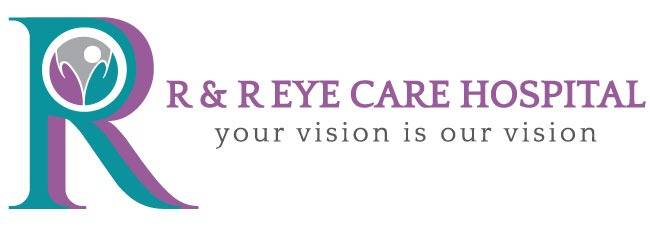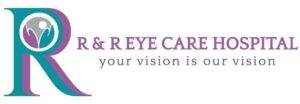In today’s digital age, screens are an integral part of our lives, from smartphones and tablets to computers and televisions. While these devices have made our lives more convenient and connected, they also expose us to blue light, which can have several negative effects on our health. Blue light glasses have gained popularity as a solution to combat these effects, but do they really work? In this blog, we’ll explore the benefits of blue light glasses, the science behind them, and whether they are worth the investment.
What is Blue Light?
Blue light is a high-energy, short-wavelength light that is part of the visible light spectrum. It is emitted naturally by the sun and artificially by digital screens, LED lights, and fluorescent lighting. While blue light plays a crucial role in regulating our circadian rhythm and boosting alertness during the day, excessive exposure, especially at night, can disrupt sleep patterns and lead to eye strain.
How Does Blue Light Affect Our Eyes?
Digital Eye Strain
Prolonged exposure to screens can lead to digital eye strain, also known as computer vision syndrome. Symptoms include dry eyes, blurred vision, headaches, and neck and shoulder pain. Blue light is believed to contribute significantly to these symptoms by causing the eyes to work harder to focus.
Sleep Disruption
Blue light exposure in the evening can interfere with the production of melatonin, the hormone that regulates sleep. This can make it harder to fall asleep and lead to poorer sleep quality, impacting overall health and well-being.
The Role of Blue Light Glasses
Blue light glasses are designed to filter out or block blue light from reaching your eyes. They come in various forms, including prescription glasses, non-prescription glasses, and clip-on lenses. The primary aim is to reduce the amount of blue light that enters the eyes, thereby alleviating the negative effects associated with prolonged screen time.
Benefits of Blue Light Glasses
Reduced Eye Strain
One of the most significant benefits of blue light glasses is the reduction of eye strain. By filtering out blue light, these glasses help reduce the fatigue and discomfort associated with staring at screens for extended periods. Many users report less dryness, fewer headaches, and a decrease in overall eye discomfort.
Improved Sleep Quality
Wearing blue light glasses, especially in the hours leading up to bedtime, can help improve sleep quality. By blocking blue light, these glasses support the natural production of melatonin, helping you fall asleep more easily and enjoy a more restful night’s sleep.
Enhanced Focus and Productivity
Reducing eye strain and improving sleep can lead to better focus and productivity. When your eyes are comfortable and your sleep is not disrupted, you can concentrate better on tasks, whether they are work-related or personal.
The Science Behind Blue Light Glasses
Several studies have investigated the efficacy of blue light glasses. While the results are mixed, many studies support the benefits claimed by users. For instance, a study published in the Journal of Adolescent Health found that participants who wore blue light-blocking glasses before bedtime experienced significant improvements in sleep quality compared to those who did not.
Another study published in Ophthalmic and Physiological Optics demonstrated that blue light-filtering lenses could reduce digital eye strain symptoms. Participants reported less discomfort and improved visual performance when using these lenses during screen time.
Do Blue Light Glasses Work for Everyone?
While many people benefit from blue light glasses, they may not work for everyone. The effectiveness can vary depending on individual factors such as the extent of screen use, sensitivity to blue light, and the quality of the glasses themselves. High-quality blue light glasses that block a significant percentage of blue light are more likely to provide noticeable benefits.
Tips for Choosing Blue Light Glasses
When selecting blue light glasses, consider the following tips to ensure you get the best results:
-
Check the Blue Light Blocking Percentage:
Look for glasses that specify the percentage of blue light they block. Glasses that block 90% or more of blue light are typically more effective.
-
Consider Anti-Reflective Coating:
An anti-reflective coating can further reduce glare from screens and artificial lighting, enhancing comfort.
-
Choose the Right Lens Color:
Lenses with a slight amber tint are common, but some blue light glasses come with clear lenses. Both can be effective, but amber-tinted lenses might provide more noticeable relief.
-
Fit and Comfort:
Ensure the glasses fit well and are comfortable to wear for extended periods. This is especially important if you plan to wear them throughout the workday.
-
Prescription Options:
If you need prescription glasses, consider getting blue light blocking lenses with your prescription to avoid having to wear two pairs of glasses.
Additional Strategies to Reduce Blue Light Exposure
In addition to wearing blue light glasses, you can take other steps to minimize blue light exposure:
-
Use Screen Filters:
Apply blue light filters to your screens. Many devices have built-in settings that reduce blue light emissions, such as Night Shift on iOS and Blue Light Filter on Android.
-
Follow the 20-20-20 Rule:
Every 20 minutes, take a 20-second break and look at something 20 feet away to reduce eye strain.
-
Adjust Lighting:
Use warmer, dimmer lighting in the evening to reduce blue light exposure. Avoid bright, cool lighting before bedtime.
-
Limit Screen Time:
Reduce the amount of time spent on screens, especially in the hours leading up to bedtime.
Conclusion
Blue light glasses can be a valuable tool in reducing the negative effects of prolonged screen exposure. By filtering out blue light, they help alleviate eye strain, improve sleep quality, and enhance overall well-being. While the effectiveness of blue light glasses can vary, many users find significant relief from their symptoms. If you spend a lot of time in front of screens and experience discomfort, blue light glasses might be worth considering as part of your strategy to protect your eyes and improve your health.




Leave A Comment